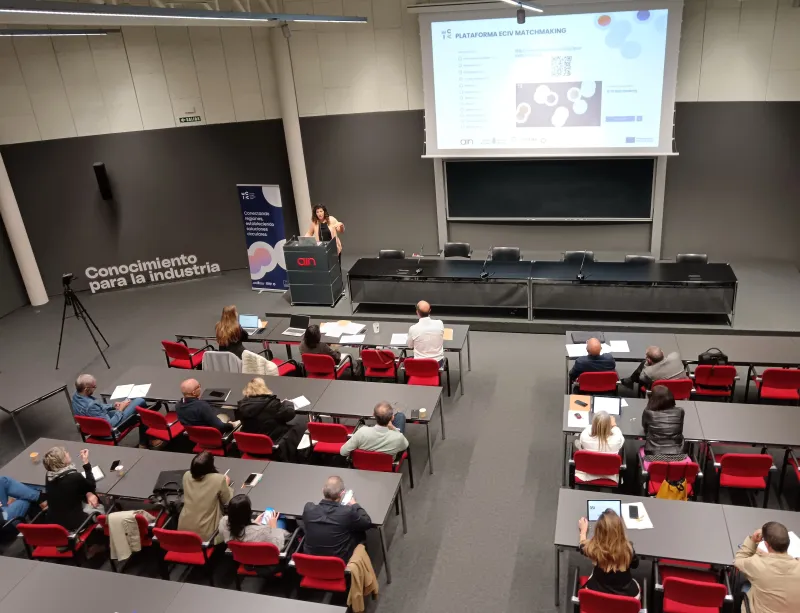On September 25th more than 50 professionals from across sectors convened for a technical workshop, “Challenges in Water Regeneration and Recirculation in Industrial Processes,” jointly organised by the Government of Navarra and Sodena, with the support of AIN (Industrial Association of Navarra). The session was held under the framework of the ECIV project, which aims to promote circular innovation across European regions.
A Collaborative Approach to Water Circularity
The event gathered representatives from water-intensive industries, technology providers, regional institutions, and business associations. Its main goals were to explore solutions for managing water resources in industrial setting— spanning pre-treatment, reuse, regeneration, and nutrient recovery—and to identify opportunities for interregional collaboration.
Key speakers included:
- Delia Sola, Head of European Initiatives Support Service, Department of Industry and Ecological and Digital Business Transition, Government of Navarra
- Montse Guerrero Pérez, Head of Sustainability and Circular Economy, Sodena
- Natalia Ortega Zunzarren, Head of Industrial Environment, AIN
- José Luís Zabaleta Navarro, Project Manager, AIN
Participants engaged in structured group discussions designed to identify shared challenges and co-develop innovative responses. Four thematic areas guided the discussions:
- Pre-treatment before industrial processing
- Water recirculation processes
- Water regeneration for reuse
- Nutrient recovery from wastewater
Each group analysed barriers, proposed technological and systemic solutions, and formulated potential project ideas, later shared in a plenary session to encourage cross-sectoral learning.
Key Insights and Outcomes
Several overarching findings emerged from the workshop:
- Regulatory complexity remains a common barrier across sectors.
- Sector-specific approaches are essential to address diverse industrial contexts.
- Monitoring and reducing water consumption must be prioritised as a foundational step.
- Water quality and treatment technologies continue to pose technical challenges.
- Economic feasibility is critical—reclaimed water must be cost-competitive with existing sources.
- Residual energy and nutrient recovery represent untapped opportunities for added value.
The session concluded with an overview of existing support mechanisms, including the ECIV Matchmaking platform, which connects organisations to partners across Europe for circular innovation projects. Both the Government of Navarra and Sodena reiterated their commitment to supporting local industries in developing and submitting proposals under future ECIV calls.
This initiative represents a significant step forward in Navarra’s strategy to integrate circularity into industrial processes. By fostering collaboration and innovation, the region aims to position itself as a European reference in sustainable water resource management.


